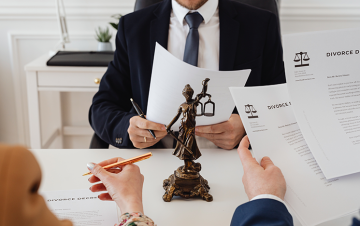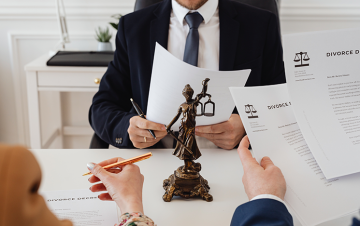Drug offenses: legal assistance
A drug lawyer is a specialist who provides legal assistance to persons under investigation or charged with criminal cases related to drugs. Drug crimes are among the most serious in criminal law, and effective legal support not only determines the outcome of the case, but also the ability to protect the rights and interests of the suspect. A qualified lawyer in such cases has a deep understanding of the law, procedural nuances, and the ability to understand the specifics of drug offenses, which allows for the most effective defense.
Legal stages of lawyer services in drug-related cases
Here are some key stages that are usually included in such cases:
- Preliminary investigation: This phase begins when law enforcement receives information about a possible offence. Evidence is collected, witnesses are questioned, the scene is examined, and other operational and investigative activities are conducted.
- Indictment: After the preliminary investigation is completed, the case is referred to the court. The indictment contains the facts and qualification of the offence and the accused persons.
- Trial: At this stage, the drug lawyer joins the court hearing where the prosecutor and defence lawyers present their arguments and witnesses are questioned. The court makes a decision according to the evidence and the law.
- Sentencing: After the conclusion of the trial, the court issues a judgement, which may be acquittal, absolving from criminal responsibility, or conviction, imposing punishment.
- Appeal: In case of disagreement with the verdict criminal defence lawyer drugs have the right to appeal to a higher court.
- Cassation instance: After the appeal instance, the parties may appeal the judgement in the cassation instance. Execution of the sentence or judgement: If a judgement of conviction is passed and a sentence is imposed, the execution of the court judgement begins.
Concluding the consideration of the legal stages in cases of drug offenses, it is worth emphasizing that each stage of the process requires high qualifications from the participants in the process. The correct implementation of all stages ensures the fairness of the case and the ability to effectively protect the rights and freedoms of the person who is suspected or accused.
Under what conditions can a drug lawyer service be provided?
Only when these conditions are met is it possible to provide legal services at a high level, which will ensure the correct approach to each individual case:
- Legal grounds: A person accused of an offence or facing legal issues in this area is entitled to legal aid.
- Availability of a qualified professional: A qualified lawyer or solicitor specialising in criminal law can provide legal aid in this area.
- Client сonsent: A person in need of legal assistance must consent to receive this assistance and to co-operate with the lawyer or solicitor.
Therefore, to provide legal assistance, it is important not only to understand the requirements of the law, but also to keep in mind that the independent choice of a qualified specialist and a clear definition of the terms of cooperation with the client will ensure the successful protection of his interests in the criminal justice process.
Under what conditions can a drug lawyer service not be provided?

Lack of qualified person: the services of a drug lawyer may not be provided, if there are no lawyers or solicitors specialising in criminal law or drug law, the service cannot be provided.

Lack of legal basis: If a person is not eligible for legal aid under the law, the service cannot be provided.

Client кefusal: If a person facing drug law problems refuses to obtain legal aid or co-operate with an attorney or lawyer, the service cannot be provided.
How to deal with drug-related cases under Articles 307-309 of the Criminal Code of Ukraine on your own?
Although for most people, solving complex legal issues on their own is not an easy task, there are certain steps that allow you to gain basic knowledge on this topic:
- Learn the relevant laws and regulations: Start by researching the relevant criminal laws, as well as any other regulations that may apply to your situation.
- Research case law: Research case law and court decisions that deal with similar situations. This can help you understand what arguments have been found valid by the court in past cases.
- Consult with professionals: It may be helpful to contact an attorney or lawyer for advice on your issue. Some lawyers provide free or low-cost initial consultations.
- Explore alternative resources: There are many online resources, forums and communities where you can ask questions and discuss your situation with others who may have experienced similar problems.
- Be prepared to educate yourself: Understanding criminal law and court processes can take time and effort. Be prepared to take the time to research and educate yourself in this area.
In conclusion, although solving legal issues on your own is difficult and requires in-depth knowledge, systematic study of the law, consulting with specialists and using alternative resources allows you to understand the main aspects of the case. However, to achieve the best results, it is still worth seeking professional help from lawyers who have experience in this field.
Common questions about a drug lawyer
Question
What is considered drug trafficking?
Answer
Being charged with a drug offence can have serious consequences. Some of these include: Criminal Penalty: Depending on the severity of the offence and other circumstances of the case, criminal penalties can include fines, imprisonment or even jail time. Criminal Record: Being charged and convicted of drug law violations can result in the creation of a criminal record, which can impact your reputation and future employability. Financial Loss: There may be fines and costs for court fees and attorney fees, which can be significant.
Question
Best drug lawyers, how to find ?
Answer
To find an experienced drug lawyer, you can use the following strategies: Referrals: Ask friends, family, or colleagues for recommendations of attorneys they have dealt with or heard of. Internet search: Use the internet to find drug law attorneys in your area. Many attorneys have online profiles where you can find information about their experience and ratings. Consultations: Schedule an appointment with several attorneys for an initial consultation. This will allow you to gauge their professionalism, experience, and approach to your case. Legal associations: Check with local legal associations or organisations for recommendations of attorneys who specialise in criminal law and drug law.
Question
How much does a drug lawyer cost?
Answer
When it comes to the cost of a drug lawyer, it can vary greatly depending on a number of factors including the experience of the lawyer, the complexity of the case, the region, etc. Prices can be fixed or calculated based on an hourly rate or a percentage of the case won. It is best to discuss this directly with the attorney at the initial consultation.
What determines the cost of a drug lawyer's services under Articles 307-309 of the Criminal Code of Ukraine?
The price may depend on several factors, such as the complexity of the case, the stage of the trial, the presence of additional circumstances (for example, international context or aggravating circumstances), as well as the reputation and experience of the lawyer. In addition, the cost may vary depending on the region where the services are provided, the amount of work required (consultations, preparation of documentation, representation in court) and the urgency of the case.
ConclusionThe consideration of cases related to drug violations is a complex process that includes various stages, each of which requires appropriate legal knowledge and experience. Proper provision of legal services in these cases is possible only if all necessary conditions are met, including legal grounds, specialist qualifications and the client's consent to cooperation. At the same time, it is possible to understand such issues independently, however, for a successful resolution of the case, it is best to contact professionals, as this will allow you to preserve the rights and interests of the client at all stages of the process.








































